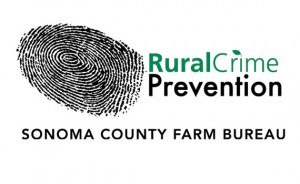 If you are a farmer, rancher, or vineyard operator in the state of California, then you should be aware of the many benefits of the California Farm Bureau Federation’s Rural Crime Prevention Program. The purpose of this program is to improve communications between agricultural communities and the local law enforcement agencies that serve them.
If you are a farmer, rancher, or vineyard operator in the state of California, then you should be aware of the many benefits of the California Farm Bureau Federation’s Rural Crime Prevention Program. The purpose of this program is to improve communications between agricultural communities and the local law enforcement agencies that serve them.
Rural crimes are a big problem, and one of the best ways to help prevent further crimes is to come together. By raising awareness, establishing effective lines of communication, and watching out for one another, the issue of rural crime can hopefully be somewhat contained.
Illegal dumping, vandalism, and theft are only the tip of the iceberg, too. Fraud, identity theft, and meth labs are also big issues to look out for.
California farmers and ranchers make up a substantial percentage of all U.S. farm crimes, so here are some tips provided by the CFBF to reduce your chances of becoming a victim:
“No Trespassing” Signs
While signs are not necessary around land that is cultivated or fenced, farmers and ranchers are required to post “No Trespassing” signs around their non-cultivated and non-fenced land.
If you are a Farm Bureau member, the CFBF will provide you with “No Trespassing” signs in both English and Spanish. These are a great, easy way to discourage potential thieves.
Bin Location Program
To date, the Bin Location Program has retrieved 770 missing and/or stolen bins. California’s crop farms, shippers, and processors are repeatedly experiencing a significant loss of bins, and this loss translates to a costly problem.
The CFBF website features a form to report missing or found bins, in an effort to return them to their rightful owners. To report, all you need to know is the type of bin and identify any markings or registered brands on the bin. The form can be found here: http://www.cfbf.com/bins/
Solar Panel Theft
The Rural Crime Prevention Program also offers tips provided by the Napa County Sheriff’s Office Problem-Oriented Policing Program on reducing your risk of becoming a victim of solar panel theft:
- Ensure all solar panels have serial numbers. This allows owners to verify which panels have been stolen and provides law enforcement officers with evidence when stolen property is recovered.
- Use locking bolts to secure solar panels and make them more difficult to remove. You can also put epoxy over the bolts, weld them down, and/or run aircraft wire through all panels to secure them to the frame.
- Place tamper-evident stickers with the owner’s name on all panels. This way, if the panels are stolen the stickers can be used to identify the owner.
- Utilize alarms specifically for solar panels.
- Employ security cameras to cover your solar fields.
- Place a fence around the panel systems to make getting to and removal of the panels more difficult.
For more information on the Rural Crime Prevention Program, and for more information on identifying meth labs and avoiding fraud and identity theft, visit the CFBF website here: http://www.cfbf.com/index.cfm

 If you are a farmer, rancher, or vineyard operator in the state of California, then you should be aware of the many benefits of the California Farm Bureau Federation’s
If you are a farmer, rancher, or vineyard operator in the state of California, then you should be aware of the many benefits of the California Farm Bureau Federation’s